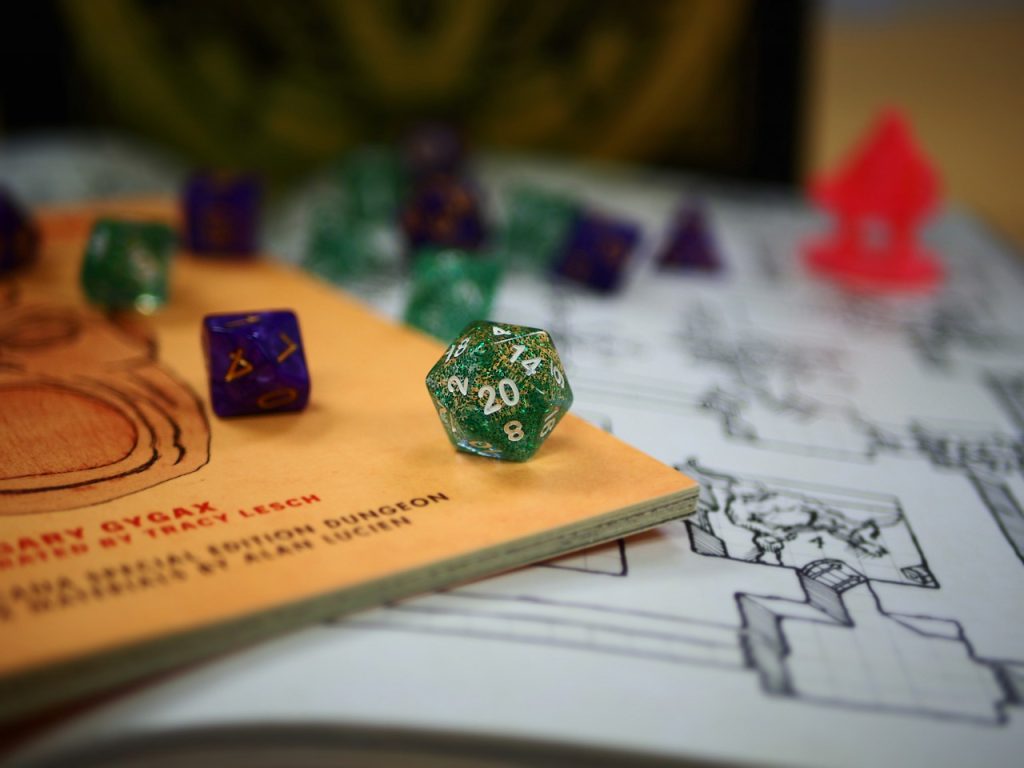If you’re a med student, the words “free time” may not be too familiar. But you may find yourself having occasional small stretches of time when you can’t bring yourself to smash that space bar repeatedly. Many of the top tiered activities for these small stretches of time include sleeping, baking sourdough, hiking, rock climbing, video games, basketball, and ceramics. As we know, rest is important for clearing the mind and rejuvenating the spirit. However, there is one pastime that remains underrated for its ability to have this very effect on the mind: Dungeons and Dragons.
Some of you may wonder, what is Dungeons and Dragons? It’s a decades old tabletop role playing game. You (and hopefully some friends) play as a character of your own making in a fantasy world created lovingly by a dedicated dungeon master. You can be anyone and do anything. Your actions are limited to your own imagination, and your success depends on your inherent skills and the roll of the dice. What comes from your choices is a story of your quest for treasure, battling foes, and saving the mortal world from the ruler of the Nine Hells, if that’s what you’re into. It’s like being able to be a hero (or villain) in the Lord of the Rings or, if you’re like me, you can be a rooster named Peck who uses his inherited dragon powers to overthrow the evil tyrant who kills his loved ones for profit (lovingly named Colonel Canders) — see Michelle Wang for more information on this charismatic, evolved T-Rex.
If you still want some help imagining gameplay, think of the biggest nerd you can. They’re sitting at a table, a mess of papers in front of them, hand hovering over a pile of oddly shaped dice. They push up their glasses before they correct another person: “ACSHUALLY, my level 20 high elf wizard has advantage against being charmed, so good luck casting suggestion.” They wave their hand to cast fireball, destroying a band of orcs in the distance.
Just kidding. But this could be your game play if you so wish. Becoming immersed in a world of your design is beneficial in more ways than just one. As a medical student, having time away from academics is important, as it reminds us what exists beyond our arduous career pursuits. Becoming engaged in such a campaign allows our minds to focus on less stressful tasks and furthermore, enables us to further spark our creativity when thinking about how we might design our character, open our mind up to possibilities of different routes of actions or sidequests, and develop our critical thinking skills, especially when faced with the aforementioned band of orcs. A game such as Dungeons and Dragons also enables us to further refine communication skills, as you will have to be working with your fellow teammates, even if this is about how to best side step the clan of elves in your path through the woods to get out safely.
All these skills tie into the very essence of what it means to be a medical student and to be in medicine. Creativity is essential for when we must think of differential diagnoses outside of the box, when the answer may not be directly in front of us. Much like when deciding which course of action to take during a turn, it is this same critical thinking that is essential when it comes to the best next steps for a care plan. Communication and cooperation are essential to functioning on a care team and finding the best path forward for the patient. Finally, relatability, be it from our backgrounds or recent conversations, is what makes us not just another white coat, but a friendly face that is welcomed back into the lives of our patients.
So the next time you and your friends find yourselves looking for a relaxing but fun way to spend a friday evening after a block exam or shelf, head on over to dnd.wizards.com, and see if you can’t conjure up your own, in-house adventure.


